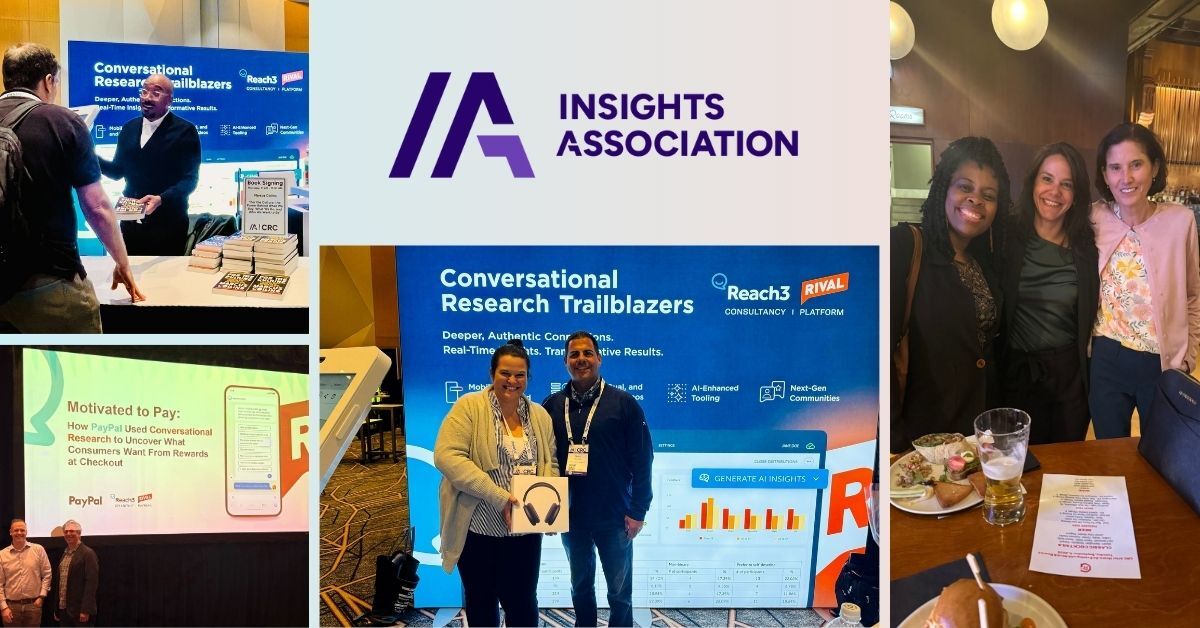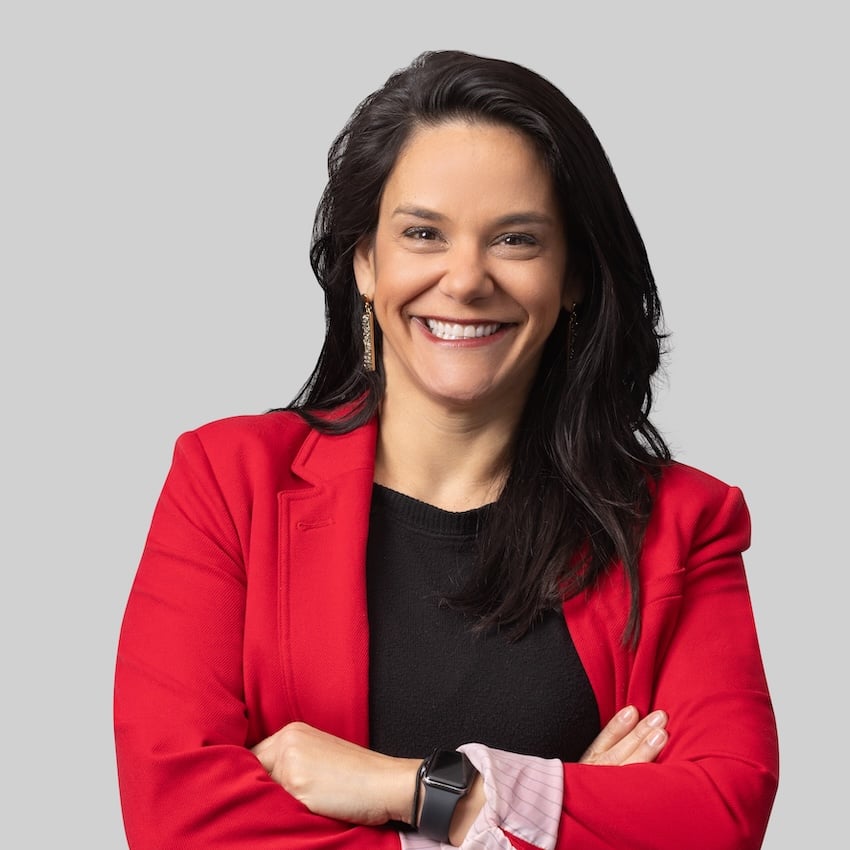
The insights industry is at a crossroads. As consumer expectations evolve, disruptive technologies accelerate, and businesses face new economic pressures, the role of insights has expanded from supporting research projects to steering organizational strategy.
At the 2025 Insights Association Corporate Researchers Conference (CRC), sessions explored how leaders are navigating this transformation — from perspectives on market research trends like AI and synthetic data to rethinking how rewards can strengthen consumer engagement.
The Rival Technologies and Reach3 Insights team attended the conference in Chicago, and we came away with key lessons on how the future of insights is being shaped. Below is a recap of some of the most thought-provoking sessions.
Speakers:
In a session titled "CMO’s Point of View," senior marketing leaders made it clear: insights can no longer operate on the sidelines. They must be growth engines. CMOs are asking for teams that go beyond answering questions to shaping the strategic agenda. The strongest insights functions connect consumer truth directly to business outcomes, anticipate market shifts before they happen, and influence decision-making with speed and authority.
The insight leader's playbook here is straightforward: elevate or be left behind.
Despite the differences across sectors, executives were consistent in their asks:
Overall, the panelists emphasized embracing AI-driven capabilities without losing the human storytelling that makes insights memorable, expanding focus from brand health to operational foresight, and engaging stakeholders continuously so alignment happens along the way—not just in the big meeting.
Speakers:
If marketing leaders set the bar high, insights executives from diverse sectors showed how those expectations play out in practice. In healthcare, Aniz Ruda of Medtronic described how insights are guiding a transformation from treatment to prevention, using AI to pioneer personalized medicine. Michelle Auguste of the NBA spoke about redefining fandom itself, noting that fans now engage through fashion, fantasy sports, and gaming as much as they do through TV viewership.
Cristina Notermann of the American Cancer Society emphasized that trust must sit at the center of any insights strategy. She shared how Voices of Black Women, a landmark study on disparities in cancer outcomes, depends on building relationships with communities historically underserved by healthcare systems.
Meanwhile, Josh Goldfinch of PayPal highlighted the tension between innovation and regulation in fintech. Meeting omnichannel expectations while complying with GDPR and CCPA requires not just rigor but also creativity, as PayPal experiments with turning financial interactions into social experiences through platforms like Venmo.
Together, these leaders underscored that while industries differ, the mandate for insights is converging: act as the steady hand in uncertain times while shaping what comes next.
Speakers:
Checkout is the moment of truth. For all the investment in acquisition and experience, the final decision often comes down to one thing: does the payment feel worth it?
During our session with PayPal, Josh shared how they worked with Reach3 Insights to explore what kinds of rewards actually shift consumer behavior at checkout.
The study engaged more than 1,000 online shoppers using Rival’s mobile-first, conversational platform. Instead of sterile grids and scales, participants responded through chat-like, conversational surveys, sharing emojis, images, and even selfie videos. This approach generated engagement rates as high as 87% and responses that were not only richer but also more emotionally revealing.
Reach3’s consulting expertise helped layer structure and analysis on top of this authentic feedback.

Several capabilities proved essential. Quantitative and qualitative data were captured in a single flow, while visual elicitation exercises surfaced emotions like trust and reassurance. AI-powered probing ensured shallow answers were followed by smart, context-aware questions. And video feedback provided stakeholders with vivid, human context—yielding up to eight times more words than text-only responses.
The results pointed to three universal design principles for rewards: make them easy, immediate, and meaningful.
According to the study, consumers overwhelmingly preferred cash back, especially when delivered instantly. Category boosters—led by groceries, followed by gas and apparel—were also highly motivating. Generational differences were clear: older consumers valued simplicity and security, Millennials leaned into experiential and financial-tool integration, and Gen Z favored gamified, social, and values-driven rewards.
What stood out most was that rewards aren’t just about savings—they carry emotional weight, signaling peace of mind and trust. Selfie videos captured these sentiments vividly, helping PayPal stakeholders see not only what consumers wanted, but how they felt.
The speakers emphasized that the findings of this study have implications for industries outside of financial services. After all, other sectors like retail, apparel, and QSR have rewards programs today.
This was a great session that demonstrated the nuance, depth and richness you can get using a conversational approach.
Taken together, these sessions reflect the evolution of the insights function into a central driver of growth, trust, and innovation. CMOs want teams that set the strategic agenda. Industry leaders are navigating disruption by putting foresight, experience, and trust at the core.
The common thread: insights leaders must innovate boldly while staying rooted in business value. The future will belong to those who can blend creativity, technology, and human empathy to guide their organizations through disruption—and shape what comes next.

No Comments Yet
Let us know what you think